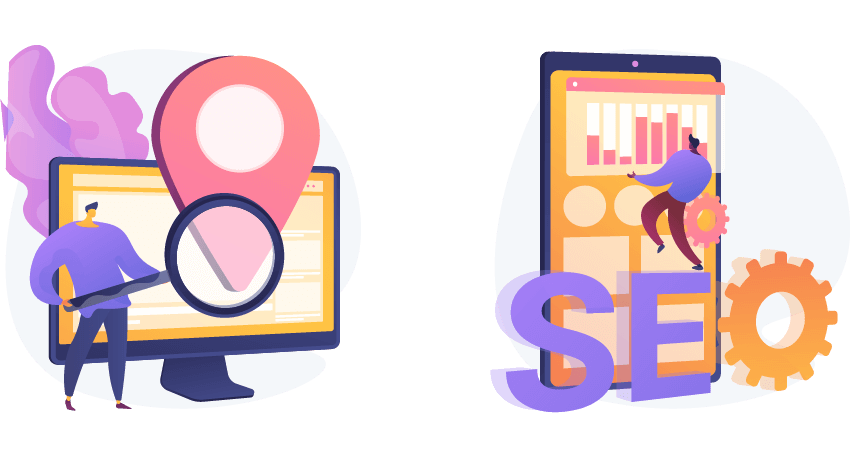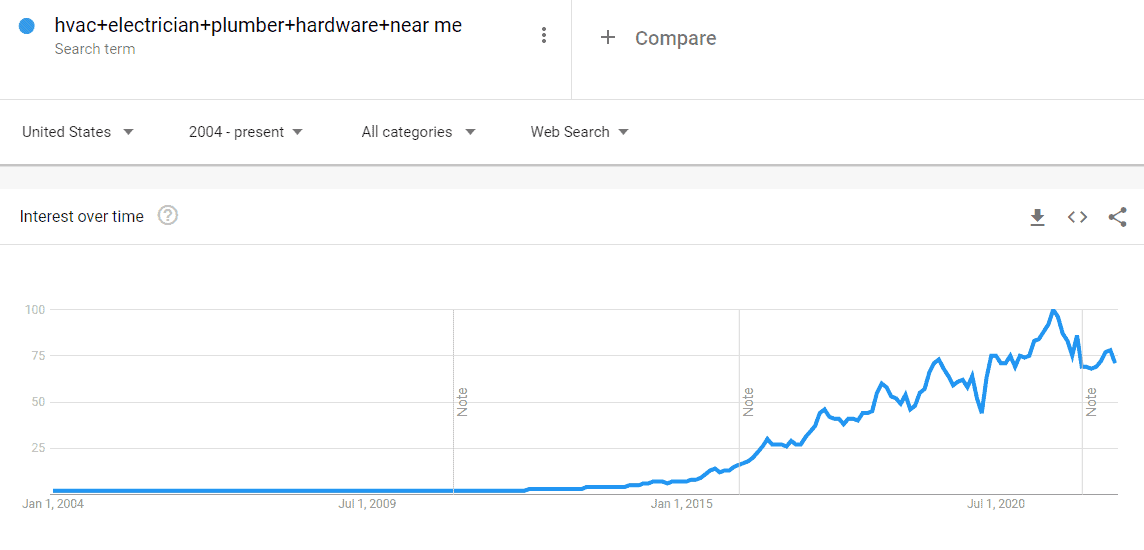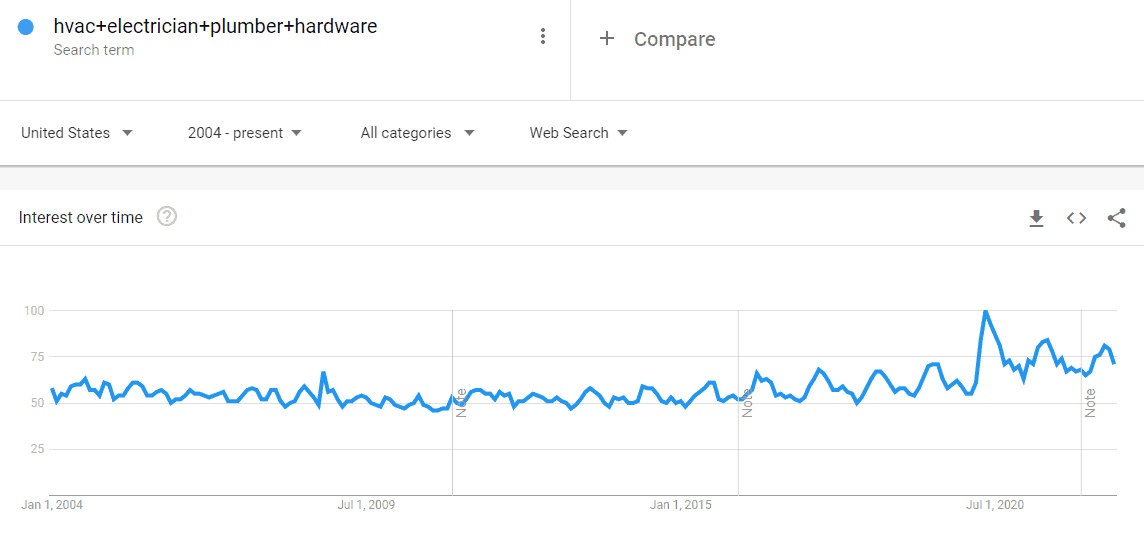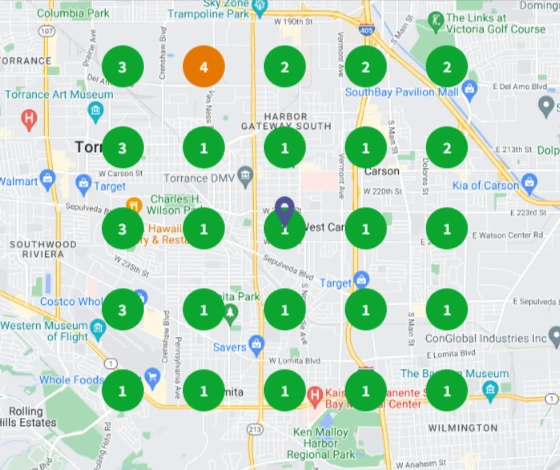Local vs. Organic SEO: Where to Spend Your Marketing Dollars

Beware of the Unsolicited SEO Email
Small business owners must be easy pickings for the SEO predators. If they weren’t, the shady operators would give up. They wouldn’t be spamming your email inbox:
For $200, we’ll fix your website’s traffic problems with gobs of free organic traffic! #1 rank guaranteed!
Let’s put this false promise to rest. $200 won’t buy you a page of quality web copy, let alone a search-optimized website. You might get a spreadsheet of metadata suggestions, a list of heading recommendations, and another list of the most easily detectable site errors. Whoop-dee-doo.
Who then will implement the changes? You? The person at your front desk? The SEO spammer — do you plan to share your website login? Bad idea.
Sure it’s only $200 bucks, but you may as well burn the $200 to light your next cigar.
SEO Is a Long-term Project, Not a Quick Fix
Building a website that generates more than a smattering of traffic takes time, patience, know-how, and effort. Over 50% of local service websites get fewer than 16 visits daily. Even when agencies build them.
Organic SEO is an investment. It pays big dividends in the long run. Short term, it’s going to cost, just like advertising.
If you’ve read this far without knowing what “SEO” means, God bless you for your perseverance. It stands for “search engine optimization,” or the art of getting web pages to rank higher in the search results.
SEOs (as we’re called in the biz) are guilty of assuming that all business owners can digest the impenetrable acronyms we serve up like courses of a marketing meal. Experience with real people tells me otherwise.
The Difference Between Organic & Local SEO
Both local and organic SEO append the “SEO” acronym. But they may as well be different planets orbiting the same sun. In a nutshell:
- Local search drives phone calls. Organic search drives traffic.
- Local search can be DIY to a degree. Organic search demands expertise.
- Local search ties to your Google Business Profile (GBP). Organic search ties to your website.
- Local search results display in Google Maps and the local 3-pack. Organic results appear as text links, usually lower on the page.
I’ve simplified the list, of course. But the takeaway is that a well-optimized GBP won’t steer much traffic to your website, and a well-optimized website won’t place you in the local 3-pack.
Organic and Local SEO are separate, complementary activities. Both are critical to the success of a local service business, but they look at very different ranking signals.
| Organic vs. Local SEO: What Matters Most? | |
| Organic | Local |
| Keywords & relevance | Verified Google Business Profile |
| Technical SEO (crawlable site, etc.) | Your reputation (Google Reviews) |
| Great content | Optimized Google Business Profile |
| E-A-T | Location signal strength (citations) |
| Page load speed | That’s it! |
| Internal linking | |
| Backlink profile | |
| Etc. | |
Local SEO Yields Fast Results
Local search is the fastest growing Google search category. What determines local search intent? Anything with “near me,” for instance.

Growth of “near me” searches for several local service businesses.

The same searches without localization.
But even if they’re looking for plain old “plumbing repair,” Google will render a list of plumbers within 30 miles or so.
Local search has little to do with search engine optimization in the traditional sense. Google looks less at keywords and more at:
- Search intent
- Your Google Business Profile
- Location signals
- Business reputation
Let’s dig into these factors just deep enough to bury the confusion.
Search intent
A Google search like “WW2 fighters” returns the most relevant pages in your language. Google prefers US-hosted pages, but the top page may come from a site hosted in the UK, Australia, or Germany. The quality, authority, and expertise of the content matter more than the location signals of the website.
But with a search like “HVAC installation,” Google infers that:
- Someone is looking for service and not a how-to guide.
- The searcher prefers an HVAC specialist within a few miles of their search location.
Google responds with a display of Local Services Ads, a local 3-pack, and localized text links underneath.
Your Google Business Profile (GBP)
Google extracts location information from your Google Business Profile. GBP is so critical to local search that Google automatically creates a profile for any local area business with a physical address.
Still, you should claim and verify your listing, optimize it, and ensure that all information is accurate.
More than 62% of US businesses have claimed and verified their Google profiles. Any business that doesn’t is giving the competition a head start.
Location signals
Two sets of location signals figure into the results.
- The location of the searcher.
- The location of the business. It pays to have accurate and consistent NAP (name, address, phone number).
Inconsistent NAP information across the internet degrades location signal strength.

This map shows local rank for five tracked keywords for a Torrance, CA business. The points on the map are only two miles apart.
Business reputation
Second only to location relevance (and a verified Google profile), your reputation determines your position in the local search results. Google rewards highly-rated businesses by featuring them in the local 3-pack.
A few great reviews can double your phone calls from Google searches, while a couple of negative reviews can cut the call volume in half. Your customer rating appears in Google Maps, the local 3-pack, and even standard organic listings. There’s no way to escape it, so stay on good terms with your clientele.
Getting the Most out of Local SEO
I’ve touched on some points already, but here’s a handy-dandy cheat sheet to help you boost your local search visibility.
- Claim and verify your Google Business Profile. This is a must. Go to Google Support to learn the process.
- Optimize your GBP. Enter a business description, check the boxes for services you provide, verify the accuracy of your business hours, phone, and address, and upload as many quality photos as possible (no stock photos). Then import your finished GBP into Bing Places for Business.
- Clarify your NAP (name, address, phone). Huh? This may seem odd — your business is where it is — but Google doesn’t know for sure if you have one address on your website, an old address on your Facebook page, and a cacophony of inconsistent information across the internet. How many times has your business moved in its history? Those internet listings are “citations,” and Google checks them against the information on your GBP. If you don’t have time to track down and correct all that conflicting NAP information, it pays to hire an agency to handle the cleanup.
- Ask customers to post reviews. Drum into the heads of your service people and support staff that whenever they complete a job to a customer’s satisfaction, they should ask that customer to leave a review on Google. Give them a direct link to Google reviews for your business; include the link on your website, business cards, and all email signatures for your business. A handful of positive reviews can make a huge difference.
Organic SEO Is a Long-Term Project
Unlike local SEO, which can drive phone calls almost immediately, organic SEO may not show results until several months after the launch of a website. But when it does, the results can be spectacular: ever-growing levels of traffic.
Local SEO usually boils down to effort and consistency.
Organic SEO demands expertise: knowledge of algorithm changes, coding best practices, site architecture, content development for SEO, schema markup, etc.
Without going into too much detail, organic ranking factors include:
- Domain authority. Yelp, Angi, and national chains will always have more domain authority than your small site. Sorry — we don’t make the rules.
- Keyword relevance. Keep your information focused and clear. Think of each page as a keyword theme.
- Content E-A-T. The acronym stands for “expertise, authoritativeness, and trustworthiness.” Thorough, well-written content usually beats cruddy content. Take your time and write something worthwhile.
- Site architecture. How intuitive is your site structure? And is it organized in logical search silos?
- Site experience (UX). High bounce rates and low engagement may signal to Google that your site is a less-than-desirable destination.
- Mobile-friendliness. In 2022, over 58% of web traffic is mobile. Google will surely ding your site if it isn’t mobile-friendly.
- Backlinks to your site. These are votes for your website from other websites. They contribute to domain authority and the fading factor of PageRank.
- Usability and crawlability. If your site is hard to use or Google can’t easily access its content, you may rank lower than a site that’s easier to use and more crawlable.
- Secure sockets layer (SSL). Is your site on a secure server (HTTPS)? It should be.
- Page speed. Google’s studies show user dissatisfaction with longer page loads. Ditch the massive hero image on your home page and optimize your site for load speed.
Google looks at over 200 ranking factors. Above, I’ve listed 10. Should I go on ad nauseam? I think I’ve made the point — SEO isn’t easy, and it pays to hire an experienced agency with a proven track record to optimize your website.
Organic SEO vs. Local SEO: Which One is Right for Your Business?
The answer is “both.”
Local SEO is critical for local service businesses. They need to rank high for searches in their service area.
Organic SEO produces long-term results and can be a fantastic source of high-quality traffic for national businesses, e-commerce sites, and yes, even local businesses, because a percentage of that high-quality traffic will come from your city.
Most local businesses we manage at Culture Cube get anywhere from 65% to 90% of their phone calls from local and organic searches combined. If local search presence drops temporarily because of a bad review, organic search will keep the phones keep ringing.

Peter Losh is the SEO Director of Culture Cube Marketing in Upland, California. He's also a de facto UX designer, site builder, and content creator. Unlike most folks in the SEO biz, he works directly on the sites he optimizes, having witnessed the effects of recommendations that go ignored or misunderstood (in previous gigs).
Peter has worked on websites since the salad days of the internet, first as a graphic artist and web designer at the Centers for Disease Control. Then came several years of freelance web development, SEO and e-commerce management for business sites of various sizes, and ultimately a 10-year stint as the sole SEO Manager of PartyCity.com.
In his spare time, he enjoys classic film, classical music, and classic comebacks. And cats.
Professional Work Experience
- Search engine optimization
- Ecommerce management
- Conversion rate optimization
- UX design and analysis
- Copywriting and training
- E-mail campaign design
- Web design and development
- Graphic design